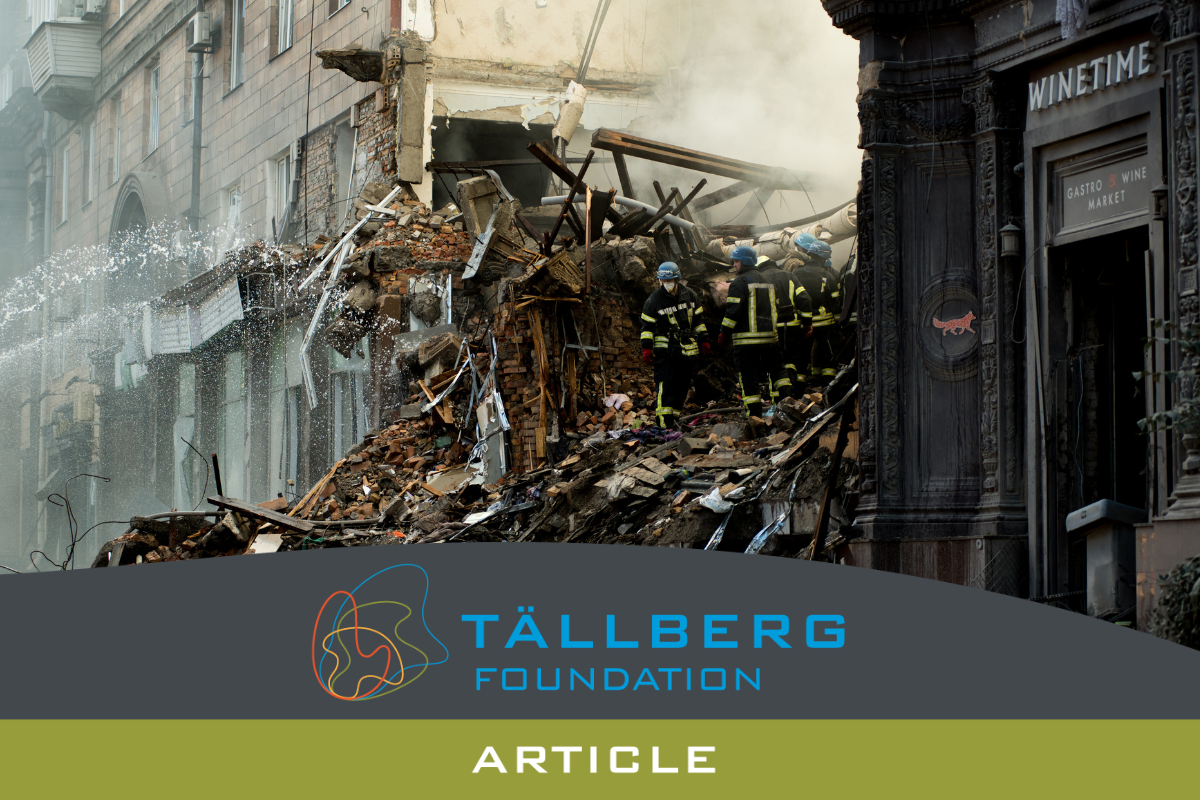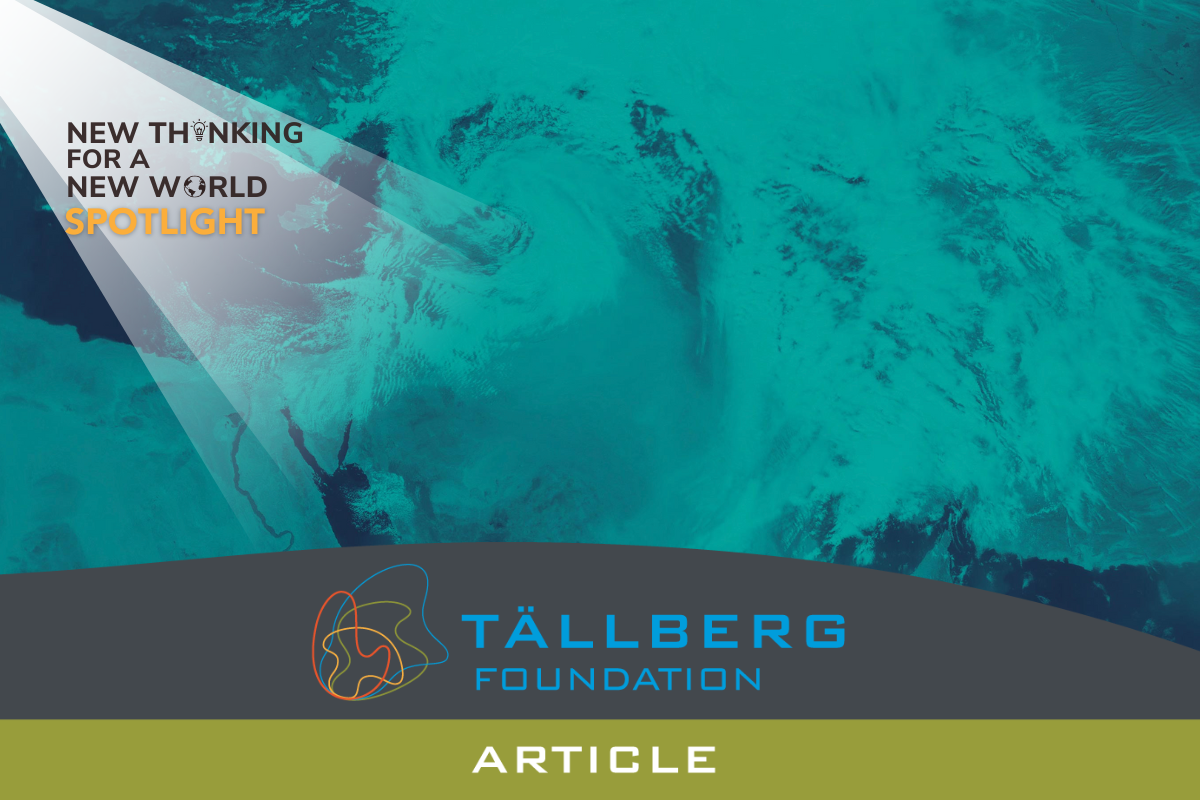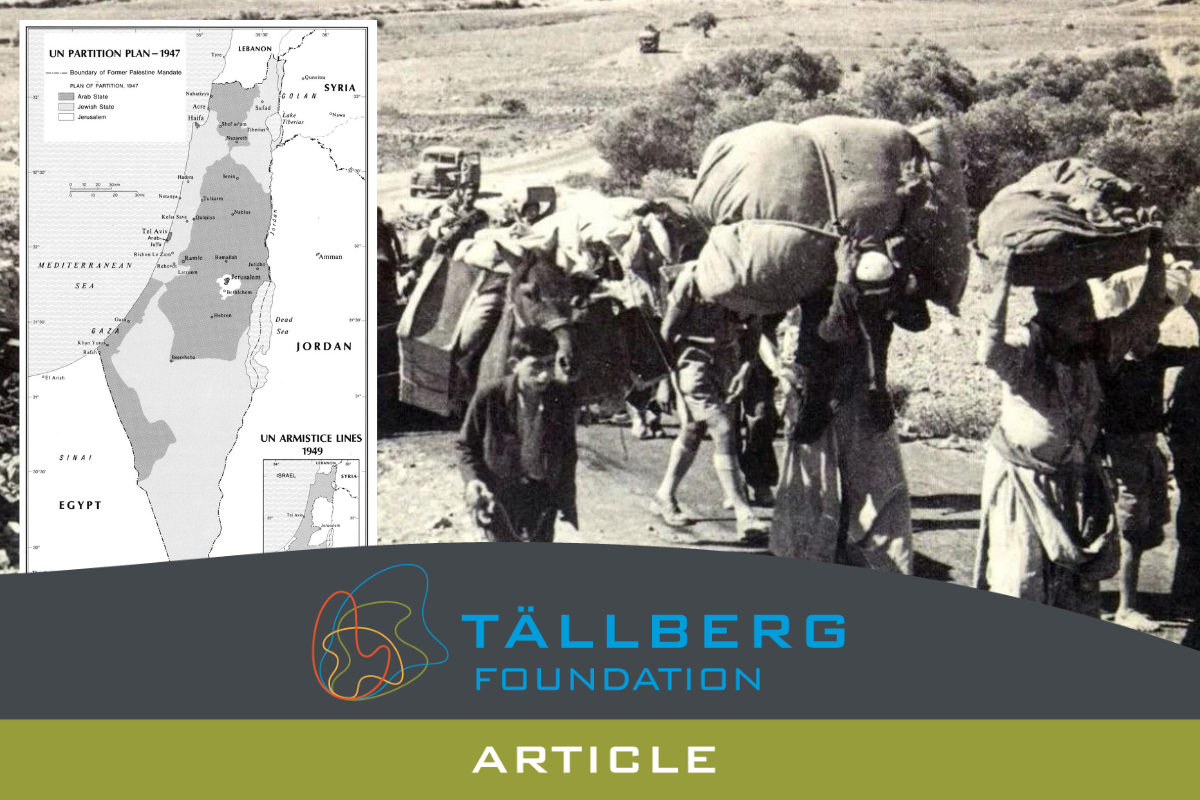We have to negotiate for an all-new security system for Europe, taking into account all sides of this problem. Russia does not feel itself to be secure. And we can laugh about this and say that we never had an aggressive approach towards Russia, but Russians think so. And they are ready to kill for this security question. So we need a huge negotiation, with both sides, all NATO members, all EU neighbors, all natural states which are interested in the security in Europe, to create a new so-called Potsdam/Yalta system, because the alternative will be 10 or 15 years of war.”
Oleksiy Arestovych, former spokesman for President Zelensky
The Russian war on Ukraine continues to evolve. The 2022 version of a war that was initially launched in 2014 has shifted from failed Russian blitzkrieg, to valiant Ukrainian defense, to dramatic Ukrainian pushback, to unsuccessful Ukrainian counteroffensive, and now to war of attrition where Russia looks to be winning on the battlefield. The problem is that wars of attrition between two unfairly matched opponents are almost always won by the big guy—in this case, Russia with five times the population and an economy ten times larger than Ukraine.
NATO committed itself to make up the difference, at least in terms of arms, munitions and intelligence—but no boots on the ground or planes in the air. However, as the “fighting season” (itself a weird throwback in a hyper-modern world) resumes, that commitment is falling short, Ukraine’s valiant military seems exhausted, and the country is on the back foot as the Russian juggernaut presses forward.
George Beebe, Director of the Quincy Institute’s Grand Strategy Program and former top CIA Russian analyst, proposed a historical comparison during a recent New Thinking for a New World podcast episode. “During the American Civil War, the North had all kinds of advantages in population and industry; the South had better generalship. Their hope was to outmaneuver the North. Eventually, after a period where they performed well beyond expectations, the advantages that the North had were overwhelming.” And we know how that ended.
The implication for the Ukraine war? “Ukraine’s counter-offensive last year was its shot at turning this into a war of maneuver, breaking through Russian defenses, forcing the Russians to sue for peace. And that didn’t work…The Russians are quite steadily exhausting Ukraine’s supplies of manpower and they have drained a lot of the West’s stockpiles of arms and ammunition.”
Logically, that only leaves a miracle—think David’s slingshot knocking out Goliath—or a negotiated settlement. The “never surrender” crowd in Kyiv, Washington and various European capitals insist that the next big infusion of artillery shells or jet fighters or whatever will do the trick. Beebe isn’t buying the argument; he says that—short of a direct NATO/Russia confrontation—the Russians can easily match and exceed the number and quality of the weapons that the West is likely to make available to Ukrainian fighters.
That leaves the “n-word.” Beebe argues that negotiations—sooner rather than later—are not only possible, but are in the best interests of Ukraine, Russia and the West
What do each of them need to settle the conflict?
- “Ukraine needs to have a secure, independent country in which it is able to be sovereign and to conduct its internal affairs as it sees fit.”
- Russia needs to be recognized “as a great power in the world,” needs relief from efforts “to exclude Russia as a player in European security and to move the NATO alliance right up to Russia’s borders—and in so doing foment regime change or cripple its economy.”
- The United States and the West “need a stable European security environment in which Western states can thrive as free democratic liberal polities; in other words, a European security environment that is safe for democracy.”
What’s obviously missing from Beebe’s inventory is territory. When President Zelensky was in Washington in December, he insisted that land is non-negotiable: “We are not going to give up territories to terrorists.”
While that is a good sound bite, Beebe insists, “It’s clear to me at this point that the Ukrainians are not going to be able to take back territory on the battlefield, and it’s clear to me that the Russians are not going to give it up at the negotiating table. So, we’re probably going to be in a situation where we will have a fait accompli that does not have to be addressed in order to stabilize the war.” He points out a long history of precedents—the Baltics during the Cold War, Korea, Cyprus and others more recently—where governments have learned “to live with a situation that it doesn’t officially recognize but has to deal with in reality.”
As goes Korea or Cyprus might go Ukraine?
Of course, lots of people would not be happy with that outcome, including many Ukrainians. This might be a classic case where the good is the enemy of the better—or, given the circumstances, the bad is better than the worse. If the Russians cannot get what Beebe thinks is one of their minimal demands—Ukraine excluded from NATO or from a significant (i.e., American) American bilateral security guarantee—then “I think [the Russian] Plan B is we’ll simply wreck Ukraine. They will so devastate Ukraine physically and economically that Ukraine won’t be able to rebuild. Those millions of refugees that have fled will not return. Ukraine will go into a terminal swoon that will leave it looking a lot more like Libya than like Poland or Germany.”
He insists that does not seem to be Russia’s preference; indeed, during negotiations after the invasion had started in 2022 the Russians had accepted in principle that Ukraine could join the European Union, but not NATO. Beebe argues that “a less corrupt, less ethno-nationalist,” more economically vibrant Ukraine—even one that “feels economically and culturally part of Europe”—would not be seen as a threat by the Russians. In contrast, they refuse to accept a “Ukraine linked to a military presence of the United States.”
Ergo, EU, ok; NATO, never.
Perhaps the biggest block to even framing a negotiation in practice has been American and European insistence that only the Ukrainians deserve to be at the negotiating table. Beebe thinks that’s a dead end and not remotely in American (or, for that matter, Ukrainian) national interests. “The Russians believe that this is not just between them and Ukraine. They believe that this is fundamentally a conflict between Russia and the United States, and between incompatible conceptions of what the European security order ought to look like.” His clear estimate is that, if Russia’s perceptions are not addressed, then the war will go on until either Ukraine is defeated or the conflict escalates into something much larger in scope.
The final, obvious question: if President Putin is winning, why would he negotiate? Beebe’s answer: The Russians “could turn Ukraine into an Iraq if they felt that they had to in order to prevent its military alliance with the United States. But they cannot fight their way into a recognized, legitimate role in Europe’s security situation…nor a normal relationship with the West…nor reduced dependence on China.”
The punch line? “Those broader geostrategic set of interests are the biggest incentive that Russians have for talking. And that gives the United States some leverage that we should take advantage of in trying to bring this war to an end.”
One huge caveat: if Ukraine collapses—which Beebe believes is possible—then “The Russians dictate the terms of a settlement, and those terms are not likely to be ones that we like.” Thus, continued U.S. support is critical, but with the goal of negotiating a stable settlement.
“The real question is [do we have] the confidence, politically, to pursue that? We talk about negotiating from a position of strength. That strength is not just military strength; it also is strength of character…And I think that’s what we’re lacking right now, the confidence to believe that we can compromise with the Russians and still survive and even thrive, which I think objectively is true. We can do this.”
Amen.
***
George Beebe recently spoke with Alan Stoga as part of the Tällberg Foundation’s “New Thinking for a New World” podcast series. Listen to their conversation here or find us on a podcast platform of your choice (Apple podcast, Spotify, Google podcast, Youtube, etc)
ABOUT OUR GUEST
 George Beebe is the director of the Grand Strategy Program at the Quincy Institute in Washington. George spent more than two decades in government as an intelligence analyst, diplomat, and policy advisor, including as director of the CIA’s Russia analysis, director of the CIA’s Open Source Center, and as a staff advisor on Russia matters to Vice President Cheney. His book, The Russia Trap: How Our Shadow War with Russia Could Spiral into Nuclear Catastrophe (St. Martin’s Press, 2019), warned how the United States and Russia could stumble into a dangerous military confrontation. Prior to joining QI, George was Vice President and Director of Studies at the Center for the National Interest and before that he served as president of a technology company that measured the impact of events, issues, and advertising campaigns on audience views. He speaks Russian and German.
George Beebe is the director of the Grand Strategy Program at the Quincy Institute in Washington. George spent more than two decades in government as an intelligence analyst, diplomat, and policy advisor, including as director of the CIA’s Russia analysis, director of the CIA’s Open Source Center, and as a staff advisor on Russia matters to Vice President Cheney. His book, The Russia Trap: How Our Shadow War with Russia Could Spiral into Nuclear Catastrophe (St. Martin’s Press, 2019), warned how the United States and Russia could stumble into a dangerous military confrontation. Prior to joining QI, George was Vice President and Director of Studies at the Center for the National Interest and before that he served as president of a technology company that measured the impact of events, issues, and advertising campaigns on audience views. He speaks Russian and German.





Give Peace a Chance?
Amidst the shifting dynamics of the Russia-Ukraine conflict, it is imperative to explore the complexities that have driven this crisis and to seek viable solutions for peace. George Beebe, Director of the Grand Strategy Program at the Quincy Institute, offers a thought-provoking analysis that sheds light on historical parallels and provides strategic insights into potential paths forward.
Historical Parallels
Understanding the current conflict requires a look back at history. The dissolution of the Soviet Union left a legacy of unresolved tensions and competing interests. Ukraine’s geopolitical significance, with its cultural and economic ties to both Europe and Russia, placed it at the center of these tensions. The 2014 annexation of Crimea by Russia and the subsequent conflict in Eastern Ukraine were stark reminders of the fragile peace in the region.
Beebe draws parallels between this situation and past conflicts where superpowers have clashed over spheres of influence. The Cuban Missile Crisis, for example, brought the world to the brink of nuclear war due to strategic rivalries. The resolution of that crisis through diplomacy and mutual understanding offers a lesson for today’s leaders.
Strategic Insights and Solutions
Beebe emphasizes that any sustainable solution must address the legitimate security concerns of all parties involved. For Russia, NATO’s expansion eastward is perceived as a direct threat to its security. Conversely, Ukraine’s sovereignty and its right to determine its own future are fundamental principles that must be upheld.
To navigate these competing interests, Beebe suggests several strategic solutions:
Renewed Diplomatic Engagement: Diplomatic channels must be prioritized over punitive measures. This involves open, honest dialogue that acknowledges the security concerns of both Ukraine and Russia. International mediators can play a crucial role in facilitating these discussions.
Security Guarantees: A balanced approach could involve security guarantees for Ukraine that do not entail NATO membership but provide sufficient assurances against aggression. Similarly, Russia could receive assurances regarding NATO’s non-expansion in the immediate vicinity of its borders.
Economic Incentives: Leveraging economic tools can help create conditions for peace. This could include targeted economic aid and development programs for Ukraine, coupled with the gradual lifting of sanctions on Russia in exchange for verifiable commitments to peace.
Decentralization and Autonomy: Within Ukraine, a degree of decentralization could address internal divisions. Granting more autonomy to regions with significant Russian-speaking populations might reduce internal tensions and make a broader peace settlement more feasible.
A Call for Peace
The path to peace is fraught with challenges, but it is essential for the stability of the region and the well-being of its people. By drawing on historical lessons and adopting a strategic, balanced approach, there is hope for a resolution that respects the sovereignty of Ukraine while addressing Russia’s security concerns.
In advocating for peace, we must remember the words of John Lennon: “Give Peace a Chance.” It is a timeless call to action, urging us to prioritize diplomacy, understanding, and cooperation over conflict and division. In the face of a complex and dangerous situation, our pursuit of peace is not just a strategic necessity—it is a moral imperative.
The Root of Conflict: A Lack of Love
The core of this conflict, and many others like it, is a profound lack of love and understanding. This deficit fosters division, making it difficult for us to act as if we all share this one Earth. Love, in its truest form, is about embracing diversity and respecting the existence of others.
Michael Jackson’s words, “We are one,” highlight the importance of unity over division. We should focus our energy on what unites us rather than on what separates us. The idea of some individuals feeling more important than others stems from a lack of love and understanding, leading to conflicts and suffering.
Unity Through Love
We are all on Earth to evolve into a higher consciousness of love. It is this shared existence in love that makes our souls equal. The innate desire to feel good is rooted in love, and the highest form of feeling good is achieved through love and unity.
Love is the binding force that holds everything together. It is the reason for any union, and recognizing this truth is essential for eradicating conflicts. We need to understand that promoting separation is contrary to the nature of love, which inherently seeks to unite.
Moving Forward
To address the root causes of conflicts like the one between Russia and Ukraine, we must focus on fostering love and understanding. This involves:
Promoting Unity: Encouraging a sense of global unity and shared existence can help mitigate conflicts.
Embracing Diversity: Recognizing and respecting the diversity of cultures, beliefs, and perspectives is crucial for peaceful coexistence.
Fostering Understanding: Engaging in open dialogue and empathetic listening can bridge divides and create a foundation for lasting peace.
By prioritizing love and unity, we can move beyond conflicts and work towards a future where peace is not just a possibility, but a reality. The pursuit of peace is not only a strategic necessity but a moral imperative that reflects our shared humanity.